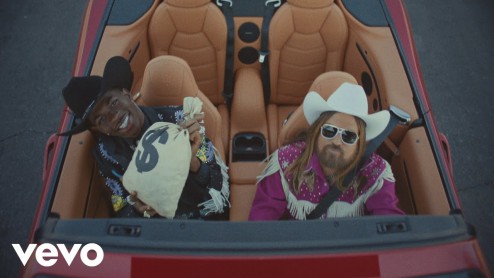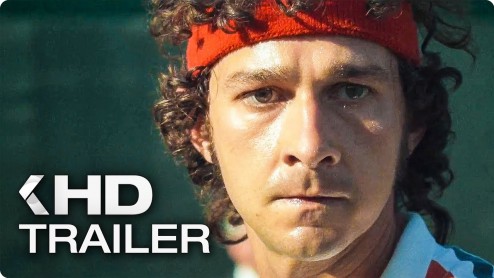Mick Champayne | Oh, the (super)humanity!29.08.2019
In the book Homo Deus, Yuval Noah Harari posits that the new human agenda consists of immortality and extreme biohacking. A small group of immortality believers is trying to “solve death”: from Google’s sub-company Calico to PayPal’s co-founder Peter Thiel. Could we, should we, or can we live forever?
Looking for a light summer beach read, I borrowed the book Homo Deus: A Brief History of Tomorrow by Yuval Noah Harari. Considered a sequel to his book Sapiens: A Brief History of Humankind, Harari discusses our potential future in terms of our recent and ancient past. The human agenda up until now has been “don't die,” and generally speaking, we’ve come a long way since our Neanderthal days. With the globalization of agriculture we’ve fought famine; with the advances of modern medicine we’ve squashed disease; and with a (relatively) peaceful co-existence between nations, we’ve snuffed out war. Ironically enough, Harari says, “For the first time ever, more people die from eating too much than from eating too little; more people die from old age than from infectious diseases; and more people commit suicide than are killed by soldiers, terrorists, and criminals put together.”
In the past 100 years we’ve managed to double our life expectancy. But that’s just tacking on years to our lives, not necessarily improving our quality of life.
In fact, we’ve done such a great job at “solving death” that in the past 100 years we’ve managed to double our life expectancy. But that’s just tacking on years to our lives, not necessarily improving our quality of life. Harari believes the new human agenda has a higher objective: eternal happiness and everlasting life. We finally have the technology and tools to evade death, but how do we use them to transcend the limits of our current humanity?
As with any modern-day tale, this story begins in Silicon Valley, where a small “life extension” community—comprised of tech billionaires, Nobel Prize-winning scientists, and Hollywood royalty—is trying to disrupt death, and elevate the concept of living forever from a fringe philosophy to a mainstream one.
Interested in “super longevity,” Googlers Bill Maris, Larry Page and Sergey Brin, launched Calico (short for California Life Company) in 2013. Maris has a pretty Utopian outlook, envisioning people living to be 500 in “a »Star Trek« future where no one dies of preventable diseases, where life is fair.” The longevity lab was created to tackle aging through speculative new technologies, including gene therapy. It’s equipped with an impressive team of researchers (and a whole lot of naked mole rats), yet remains vague about their actual research. “Instead of ideas chasing the money, they have given us a very handsome sum of money and want us to do something about the fact that we know so little about aging,” says David Botstein, Calico’s chief scientific officer, who also happens to be 76 years old.
What would a world full of perpetually living people look like? When the world’s wealthiest have the option to lengthen their lives far beyond natural lifespans, who ends up left behind?
Other like-minded life extensionists (or longevists, or immortalists) include PayPal’s Peter Thiel, Oracle’s Larry Ellison, and Amazon’s Jeff Bezos. What they all have in common are companies uniquely primed to own this new biohacking industry. Francesco Corea, a tech investor and complexity scientist, says, “They own tons of data, not only on healthcare, but information that may exponentially complement the profile of a person. They have talent, and many of them know how to deal with hardware R&D. They have access to health data coming from non-health products. They have a lot of money, but coming from innovative revenue streams that therefore create the right incentive to pursue longer-term goals and to change the traditional healthcare research paradigm. They already have an ecosystem of other devices, software, and services they offer, which makes the deployment incredibly easier.”
Honestly, they sound poised to take over the world, becoming truly immortal or God-like. These tech titans are known for making the impossible possible. So what happens if—or when—they succeed? My mind travels to so many questions about the implications. What would a world full of perpetually living people look like? When the world’s wealthiest have the option to lengthen their lives far beyond natural lifespans, who ends up left behind? How does living forever impact some of our cultural and religious institutions, like marriage and ceremonies of death? Most importantly, what if you have to go through puberty for 80 years?
The mega-rich have already started doomsday prepping. They are buying up property all over the world and building luxurious designer bunkers in an effort to future-proof their lifestyles.
And if we’re all living forever, the bigger question is “can the Earth even sustain such a staggering number of people”? Our technological advances may have helped us live longer, but they could ultimately lead to our demise as we hurdle towards the very real threat of climate crisis, starting with the Amazon, rising sea levels, food shortages, and mass migration. One of the most interesting predictions (prophecies?) in Homo Deus brings up is a potential future "Noah's Ark" which will deliver the rich and social elite from ecological collapse, leaving the poor masses to deal with the fallout: “Even if bad comes to worse and science cannot hold off the deluge, engineers could still build a hi-tech Noah's Ark for the upper caste, while leaving billions of others to drown”.
And Harari might not be too far off the mark: the mega-rich have already started doomsday prepping. When they’re not biohacking and optimizing their bodies, they are buying up property all over the world and building luxurious designer bunkers in an effort to future-proof their lifestyles. This newest evolution of survivalism has Elon Musk as the poster boy. Anticipating the singularity (when robots fight back), he’s developed implants that merge the human brain with AI that can interface directly with computers and improve our cognitive abilities. He’s also using all of his ventures, like developing electric cars and privatizing space flight, as stepping stones for the ultimate escape hatch: colonizing Mars.
These billionaires make it sound more like the human agenda is actually to escape. Despite having amassed such great wealth and power, they don’t believe they can affect the future. Media theorist Douglas Rushkoff says, “They are simply accepting the darkest of all scenarios and then bringing whatever money and technology they can employ to insulate themselves—especially if they can’t get a seat on the rocket to Mars.”
But he has hope: “Being human is not about individual survival or escape. It’s a team sport. Whatever future humans have, it will be together.”
see also
- Mick Champayne | Life After Privacy

Trends
Mick Champayne | Life After Privacy
- The Price of Progress

Trends
The Price of Progress
- Justin & Kristin Schaack | Superpower
 Papaya Rocks Film Festival
Papaya Rocks Film FestivalPeople
Justin & Kristin Schaack | Superpower
- Rare Behind-the-Scenes Footage and a Smiling Carrie Fisher. Get a Look at the Filming of "The Empire Strikes Back"

News
Rare Behind-the-Scenes Footage and a Smiling Carrie Fisher. Get a Look at the Filming of "The Empire Strikes Back"
discover playlists
-
Animacje krótkometrażowe ubiegające się o Oscara
 28
28Animacje krótkometrażowe ubiegające się o Oscara
-
Nowe utwory z pierwszej 10 Billboard Hot 100 (II kwartał 2019 r.)
 15
15Nowe utwory z pierwszej 10 Billboard Hot 100 (II kwartał 2019 r.)
-
Muzeum Van Gogha w 4K
 06
06Muzeum Van Gogha w 4K
-
 05
05
